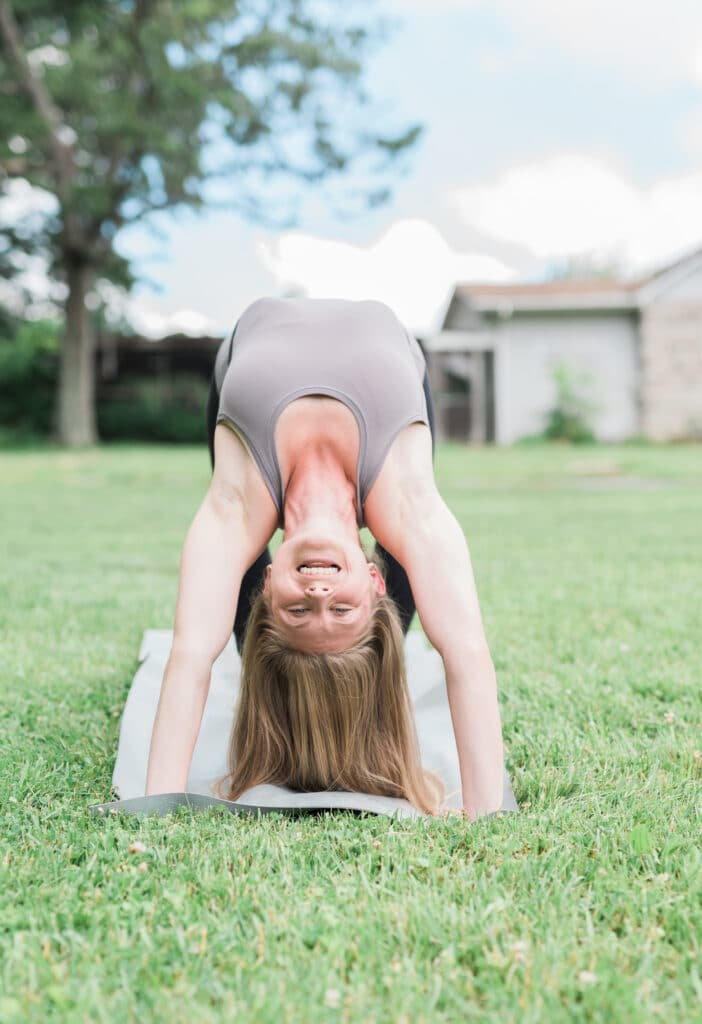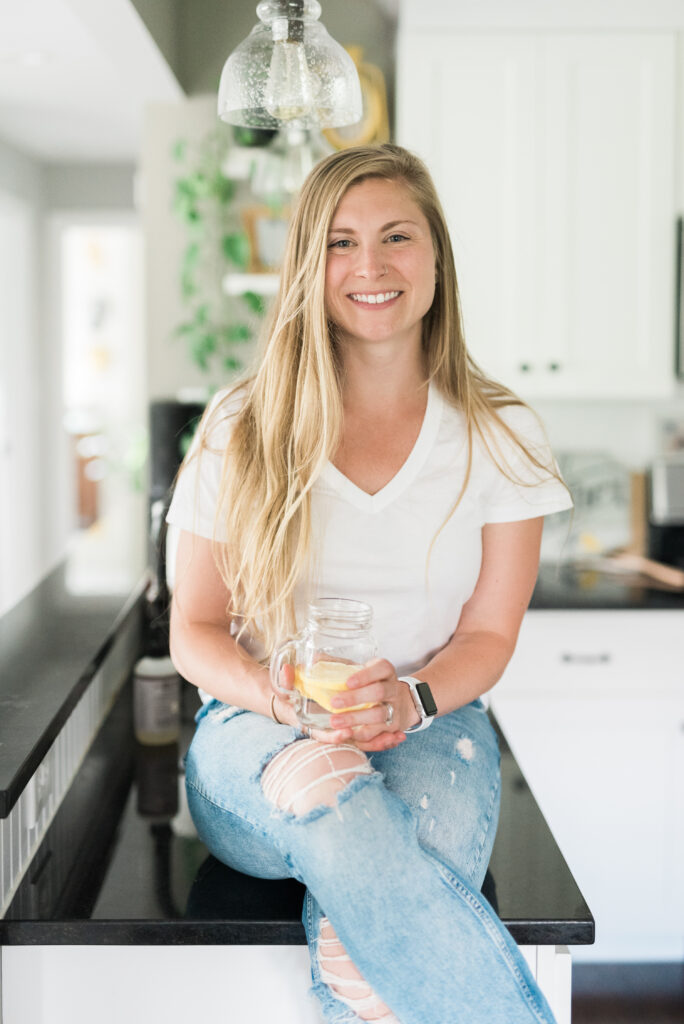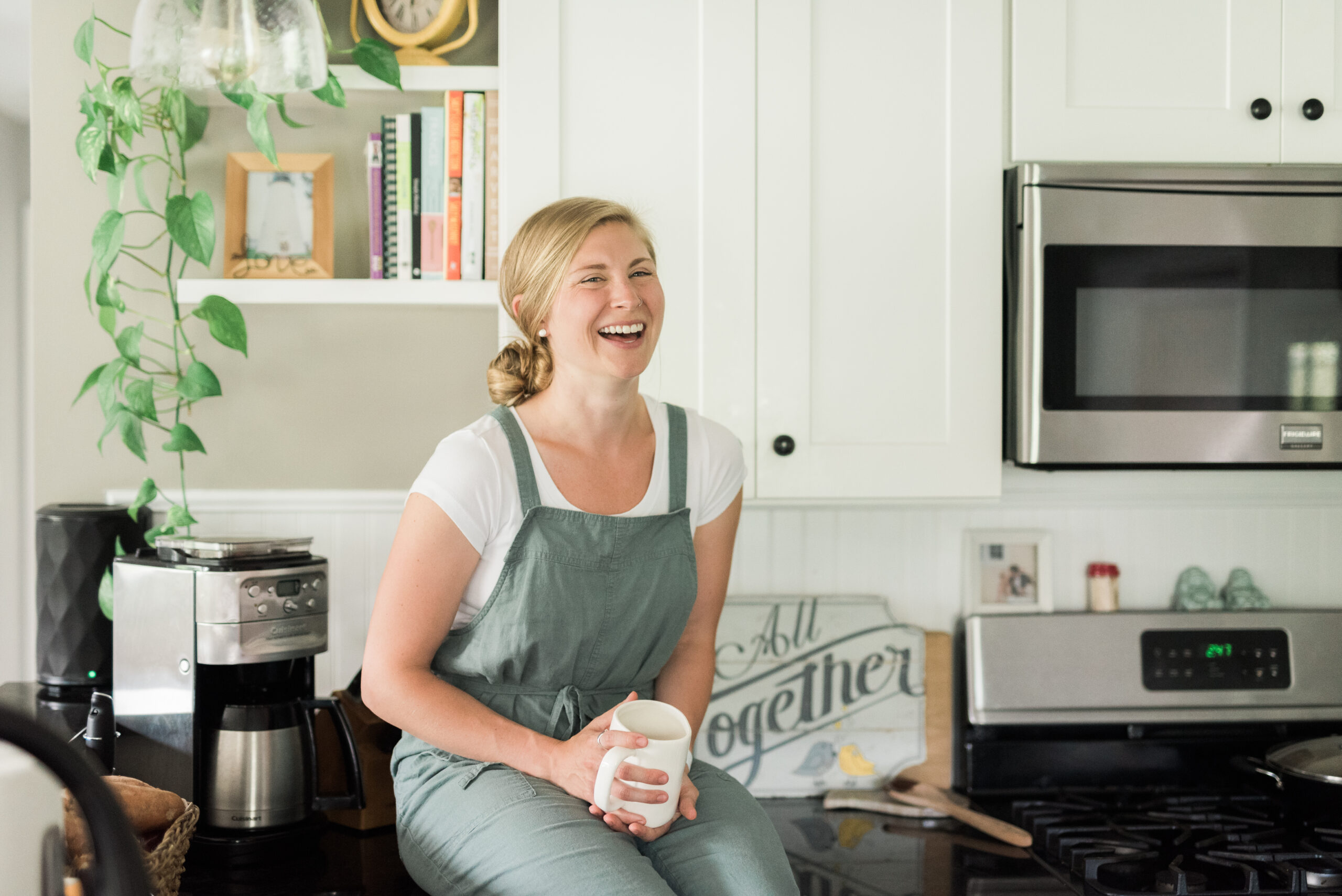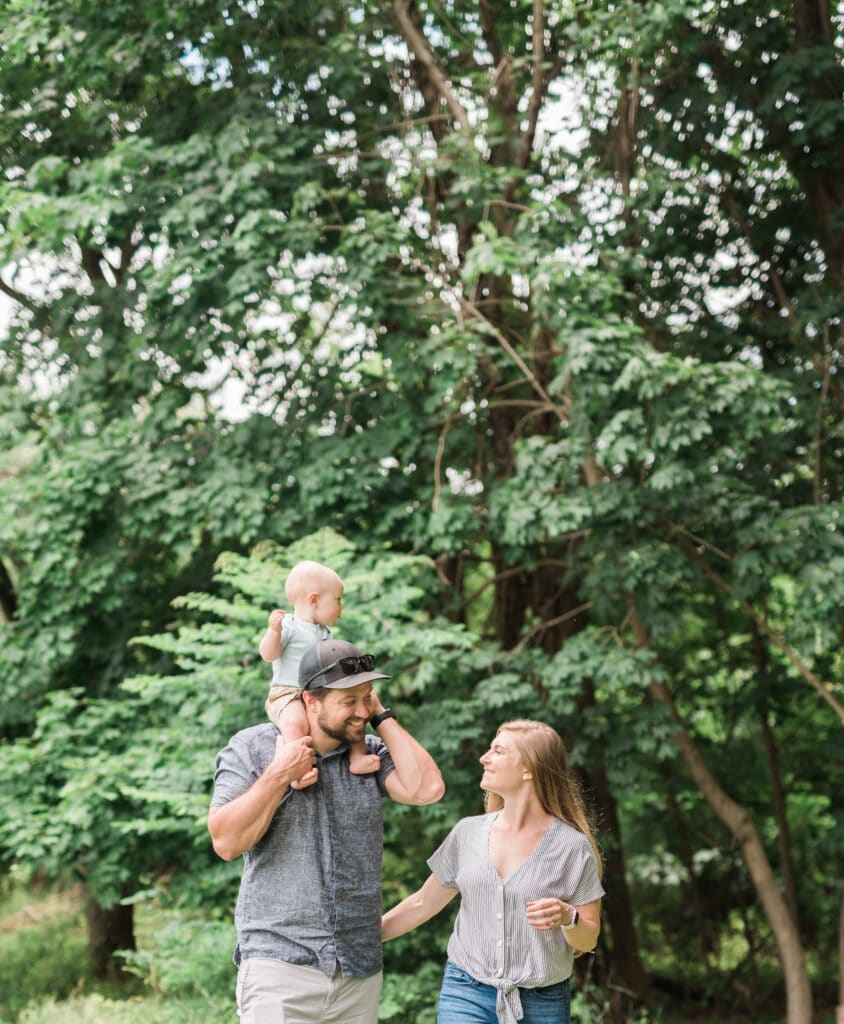
Why Holistic Health?
Holistic Health has become increasingly popular over the last 10-15 years and for a good reason.
It’s an approach to overall health that can bring balance into your life through the use of natural remedies and inner healing. It focuses on the health of your mind, body and spirit. Through my personal experience, holistic health has shaped me into the healthiest version of myself and I am beyond grateful for it. However, it wasn’t a quick fix and it involved a lot of trial and error. You see, there are many approaches to holistic health. So, I encourage you to do some exploring and begin discovering which practices work best with you and your lifestyle. Continue along as we dive deeper into the realm of holistic health and why it’s so important.
What is Holistic Health?
In short, holistic health can be described as a form of healing physically, mentally, emotionally spiritually and socially. According to the American holistic health association, holistic medicine can be formally defined as “the art and science of healing that addresses the whole person- mind, body and spirit.” There are many approaches to holistic health and medicine. Each approach has the same goal, to help an individual reach a state of optimal health. When exploring the world of holistic health, one will find a variety of practitioners that include:
- Herbalist
- Massage therapists
- Holistic health coaches
- Reiki masters
- Chiropractors
- Yoga instructors
- Personal trainers
- Nutritionists
- Homeopathic doctors
- Acupuncturists
- Music therapists
- +more
Each of the previously mentioned practitioners can help aid in reaching a state of personal balance and wellness. When receiving care from these practitioners, a client is more likely to find inner peace and heal from within. Unfortunately, in our current health care system there are a lot of prescriptions handed out to mask an illness instead of heal it. These days, most patients will see their primary health care provider when something arises. Typically, the appointment with the actual doctor lasts about two-minutes long and concludes with a prescription in hand. The worst part of this process is that the prescription given to a patient is a drug that’ll mask the symptoms they’re experiencing. The prescription doesn’t actually fix the underlying health problem. It’s a never-ending cycle that leads to frustration and resentment. If this sounds like something you’ve experienced then I encourage you to start exploring alternative health care. There are an incredible amount of resources and practitioners who can help you reach the state of health and wellness you strive to achieve.
Now that we’ve covered the basics of what Holistic health is as a whole, let’s take a moment to talk about the fine details. Within the realm of holistic health lies five major components. These components include physical health, mental health, emotional health, spiritual health and social health. Below I have outlined brief description of each along with some health care tips and practices you can use to strengthen your relationship with one or all of these categories.
The Five Components of Holistic Health
- Physical health

Physical health is the most common associated with health and wellness. That’s because it involves physical signs and symptoms. When our bodies begin to experience a reaction it’s easy to take note and provide tangible measurements as opposed to a mental experience which isn’t as easily measured. When it comes to creating a lifestyle that works well with your physical health I highly suggest including the following
- Hydrate- majority of our bodies are made of water. It’s extremely important you drink enough each day to stay healthy. If your pee is any shade of yellow, then I suggest drinking another 12 ounces of water. Believe it or not dehydration is typically the reason someone may be experiencing dizziness, fatigue, hunger, headaches, stomach aches, constipation + more. So, drink up! If drinking water is a challenge for you then I suggest adding some fresh fruit like lemon, lime, or even berries. If fruit isn’t your thing you can also try cucumber and fresh mint.
- SLEEP- get at least 7-8 hours of sleep a night. Resting your body and mind is such an important part of physical, mental and emotional health. Your body cannot function without it so make sure to prioritize rest as much as you prioritize food or your job.
- Eat nourishing food- eating a well-balanced diet is important for not only physical health but also for mental, emotional and spiritual health. I suggest eating all colors of the rainbow in whole food forms. Buy produce from your local farmers markets or grocery store. Keep in mind to eat all colors. Eat bright red peppers and tomatoes. Eat navel oranges, peppers and carrots. Eat yellow bananas, squash, peppers and onions. Eat green leafy vegetables, celery, apples, grapes, kiwis, pears and avocados. Eat blueberries, blackberries and drink a lot of water! Some other food groups I recommend are nuts and seeds, beans and legumes, whole grains and lean protein sources such a fish, poultry and meat.
- Movement- as human beings we were made to move and most of us thrive on it. Our bodies are designed in a way to walk, run, skip, jump, swim, hop, stretch, bend, fold etc. So, it’s extremely important to move at least 30 minutes a day. There is no pressure here either, this doesn’t mean hitting the gym every day and completing a strenuous workout. This means moving at least 30 minutes a day and that includes, cleaning the house, going for a walk with your dog, running around the yard with your kids, going to a yoga class, going on a hike or an easy bike ride, helping your friends move etc. Exercise and movement have been proven to help those who struggle with anxiety and depression. So, next time you feel a little tense or down, I highly recommend taking a 30-minute walk on your nearest trail. You’ll be amazed how quickly it can shift your mindset and make your body feel alive.
2. Mental Health

Mental health is often a taboo sort of topic. It’s ironic because so many people struggle with mental health conditions like depression, anxiety, addiction etc. So why don’t we fix that? Considering how common it is, mental health is an important part of living a healthy life. It’s a coincides with other component of holistic health too. Mental health overlaps with emotional and physical health because each one is connected to the other. If one of the holistic components is imbalanced than its likely another component will become imbalanced as well. Mental health is important because it’s the way your brain processes and reacts to information. It’s our cognitive ability to affect how our brain processes information. When it comes to creating a healthy routine/space for your mental health, I suggest the following practices:
- Meditate- it’s a great practice to clear the mind and rid it of any crowded thoughts. There have been countless studies that support the practice of meditation and its healing capabilities. Take just 5 minutes a day and feel the magic unfold.
- Challenge yourself- it’s important to keep your mind active in various ways. This means reading a variety of literature, doing cross word puzzles, math problems, trivia, learning another language etc.
- Avoid junk- my definition of junk includes processed foods, artificial ingredients, toxic household products, alcohol, smoking and toxic relationships.
3. Emotional Health

Emotional health and mental health often get confused, but really, they’re very different. Emotional health is how we feel and mental health is how we process information. Emotions are powerful because they too can affect our physical and spiritual health. It’s important to prioritize emotional health because it’s a part of who we are. Some practices that can support your emotional health include:
- Therapy or counseling- finding a professional to talk to can make a huge difference in someone’s life. Even though close relationships with friends and family are important, sometimes they aren’t the best resource to share your deeper thoughts and emotions with. That’s why I highly recommend seeing a therapists or counselor. Building a trusting relationship with a third party source is a healthy way to keep your mind at ease. It’s a safe and professional space created for you to share your deepest thoughts and emotions without any judgment.
- Record/Journaling- personally, journaling has become one of my favorite ways to spend my mornings. I feel it sets me up for success and gives me space to write down what I’m thinking and feeling. It also helps me focus on what emotions I’m genuinely experiencing in that very moment. I challenge you to start journaling every morning right after you wake up and as a bonus, record five things you’re grateful for. Making this a part of your morning routine can really shift your mindset to a more positive one.
4. Spiritual Health


Spiritual health involves the connection with your inner self or your highest self, also known as your soul. Many associate this with a religious practice, but it doesn’t necessarily mean you have to be a part of a religion to be spiritual. Though spirituality and religion overlap in many ways they are not the same. When it comes to creating a stronger spiritual connection with yourself I recommend the following practice’s:
- Meditation + prayer- mediation and prayer can be the easiest way to connect with yourself and/or a higher power. Whatever your beliefs entail, know that these are great gateways of centering the beliefs you hold close to your soul.
- Worship- if you practice a particular religion it’s important to take time and honor your practice. No matter the religion it’s always a good idea to take time each week to connect with the energy/god(s) you resonate with.
- Spend time outside- As human beings, we are naturally a part of our environment. That’s why time and time again so many of us find ourselves gravitating to nature. So, take time each week to be in nature. Go for a walk, hike, hang out at a local pond, or trail, lay in a hammock between two trees and soak in the sun.
5. Social Health

Have you ever watched the documentary “Happy”? I remember watching it years ago on Netflix. Summed up it was documentary that researched the happiest people on the planet. The overall conclusion of the “happiest” people were those heavily involved with their families and communities. That’s because we’re human beings and we’re meant to socialize and form relationships with one another. Having healthy relationships with others plays a huge role in holistic health and wellness. So, here are some fun suggestions on how to strengthen your social health.
- Community- being involved in your community is a great way to build lasting, wholesome relationships. If you have a hard time connecting with strangers, try attending some events/classes you find interest in. This way you can meet some likeminded people. Try a local spin class, attend your local farmers market, support a local restaurant or open mic night. Volunteer at your local shelter, join an intermural sports team, check out a local yoga studio or hair salon. Whatever you do, stay open minded and try your best to open your heart. You never know who it may lead you to.
- Boundaries- setting boundaries with others has to be one of the most challenging parts of a social relationships. However, boundaries are extremely important in maintaining social, emotional and mental health. Have courage to set boundaries and if that means creating space or walking away from a toxic relationship then so be it.
I hope you found my explanations on holistic health helpful. If you have any questions I am more than happy to answer them via message or email. I love discussing different practices, rituals, theories and more. As an IIN holistic health coach, it’s my goal to provide resources for you to find helpful within the holistic health world. On a more personal note, holistic health has completely changed my life. The world of holistic health helped me discover old wounds that needed mending, delicious and nourishing food + recipes, form new and genuine friendships and realize the self-love I longed for, for many years. Holistic health has completely changed my life and healed my relationships with myself, my body, food, loved ones and more. My conclusion? Holistic health is so much more than just healthy food and exercise. It’s a lifestyle, a practice and the best part is there’s no “one way” to practice holistic health. You choose what you want to practice. You choose what works for you and your body. That’s the beauty and versatility of holistic health.
If you have any questions about IIN or are interested in becoming a holistic health coach, you can click one of the three links offered below.
Until next time,
stay sweet.
-Ashley


